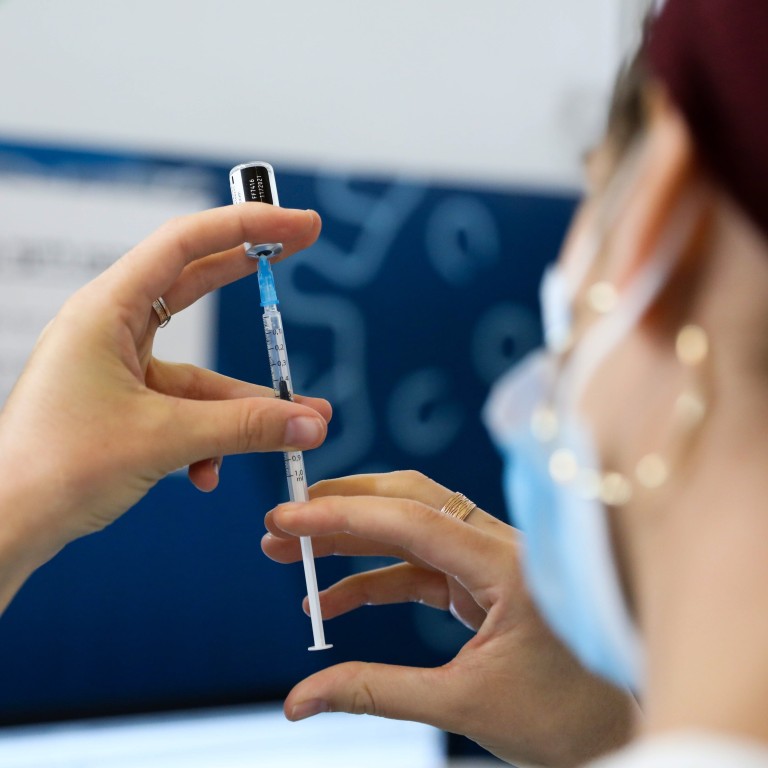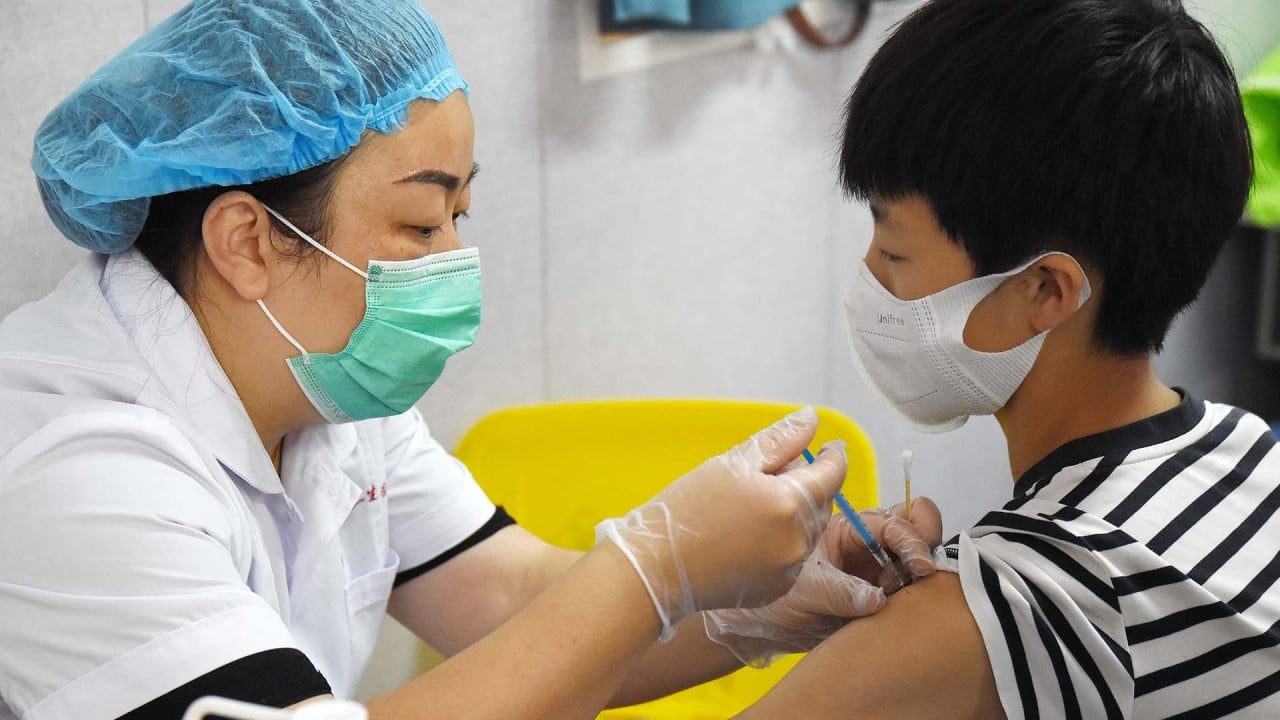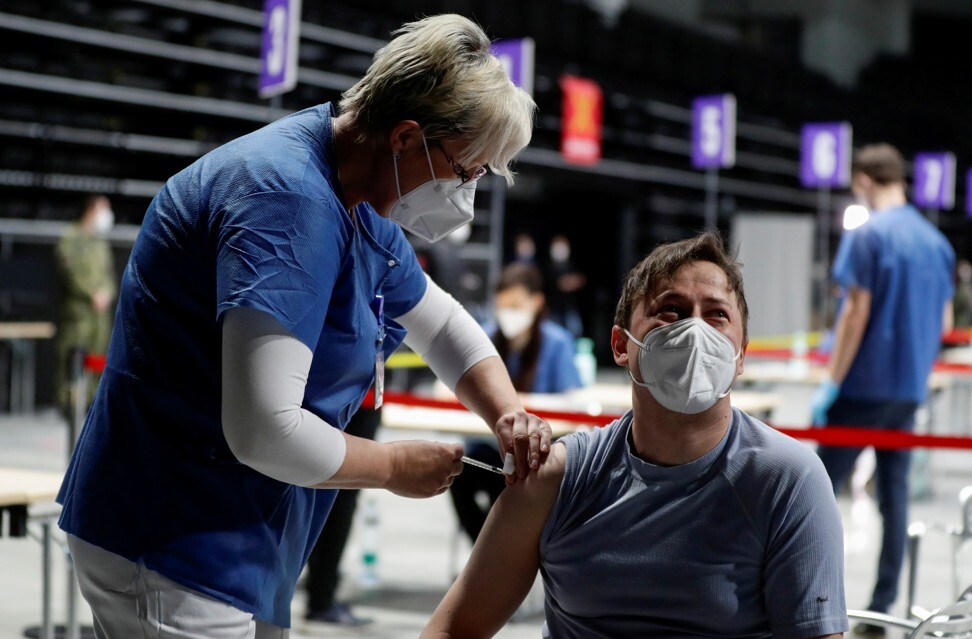
Coronavirus: booster shots can help vulnerable, WHO Europe head says
- The comments from WHO Europe head Hans Kluge appeared to be more positive than the UN health body’s past assessments of third vaccinations
- Elsewhere, a new study has found 1 in 2 people who had long Covid still suffers months later
A coronavirus booster shot is a way to keep the most vulnerable safe and not a luxury robbing people who have yet to have even a single jab, a senior World Health Organization official said on Monday.
The comments from WHO Europe head Hans Kluge appeared to be more positive than the UN health body’s past assessments of the third vaccinations being administered by a growing number of countries.
Last week, WHO Director-General Tedros Ghebreyesus said data on the third shots was inconclusive. He had earlier said they should be halted and authorities should focus on getting the doses to poorer nations.
Israel offers Covid-19 vaccine booster shots to children as young as 12
On Monday, Kluge told a press briefing that more studies were showing that third doses protect vulnerable people.
“A third dose of vaccine is not a luxury booster (that is) taken away from someone who is still waiting for a first jab. It’s basically a way to keep the most vulnerable safe,” he said.
Kluge said more evidence was still needed and urged European countries with excess vaccines to share them with other states, particularly in Eastern Europe and Africa.
An increase in Covid-19 transmission rates across Europe over the last two weeks, combined with low levels of vaccination in some countries, was “deeply worrying”, he added.
The Czech Republic said on Monday it would offer booster shots to anyone vaccinated at least eight months earlier, joining a growing list of countries stepping up measures to curb the spread of the coronavirus Delta variant.
Israel began offering a Covid-19 booster to children as young as 12 on Sunday.
In response to the WHO director general’s comments last week, Pfizer and BioNTech said a third dose of its vaccine, the most widely used in the Western world, spurred more than three times as many antibodies against the coronavirus as the second shot.

01:45
China administers nearly 2 billion Covid-19 vaccine doses as Delta variant appears under control
Every second person with long Covid still suffers months later
Even nine months after surviving a coronavirus infection, around 50 per cent of patients are still suffering from long Covid symptoms, such as a lack of sense of taste, fatigue or impaired thinking and concentration, according to new research.
A long-term study at the university hospitals in Kiel, Wuerzburg and Berlin in Germany found the lasting symptoms applied both to young, athletic patients who were infected in the first wave and older patients who were particularly affected in the second wave.
The 50-per-cent figure is up significantly from previous estimates. The World Health Organization (WHO) had estimated that only one in 10 coronavirus patients still experienced persistent ill health 12 weeks after testing positive.
British study shows risk of hospitalisation doubles with Delta variant
Professor Thomas Bahmer, one of the lead researchers involved in the study, cautioned, however, that it is not yet certain whether Covid-19 is the cause of the complaints in all cases.
Other factors could also be the long-lasting intensive medical treatment and the general psychological stress caused by the pandemic, Bahmer said.
The study, funded by the nationwide University Medicine Research Network and the state of Schleswig-Holstein, has been running since November 2020. Since then, around 1,500 patients in Germany have been examined.
Clinics in many countries now offer rehab programmes for long-term effects of Covid-19, variously called Long Covid or post-Covid conditions. Sometimes the terms are used synonymously, and occasionally post-Covid serves as an umbrella term for all long-term effects of the disease.
France to donate 10 million vaccines to Africa
France and the African Union announced in a statement on Monday a “new partnership” allowing Paris to deliver some additional AstraZeneca and Pfizer vaccines.
The African Union’s Vaccine Acquisition Trust will be in charge of distributing the doses, in coordination with the Covax facility global sharing programme, a UN-backed effort to ensure that low- and middle-income countries have fair access to the shots.
The African Union’s initiative so far was able to buy enough doses to vaccinate 400 million people, or one third of the African population, by Sept. 2022, at a cost of US$3 billion, the statement said.
Britain reports lowest number of cases in nearly 3 weeks
Britain has reported 26,476 new coronavirus cases, the lowest number since August 10, government data showed on Monday.
The figure meant cases reported between August 24 and August 30 were up by 1.8 per cent compared with the previous seven days.
Case numbers often dip after weekends and the latest figure might be skewed by Monday’s bank holiday in much of the United Kingdom.
A further 48 people were reported as having died within 28 days of a positive test for Covid-19, the lowest since August 23, taking the seven-day increase to 14.8 per cent.
A total of 48.025 million people had received a first dose of a vaccine against coronavirus by the end of Aug. 29 and 42.719 million people had received a second dose, equivalent to almost 79 per cent of people aged over 16.
Reporting by Reuters, AP, dpa

